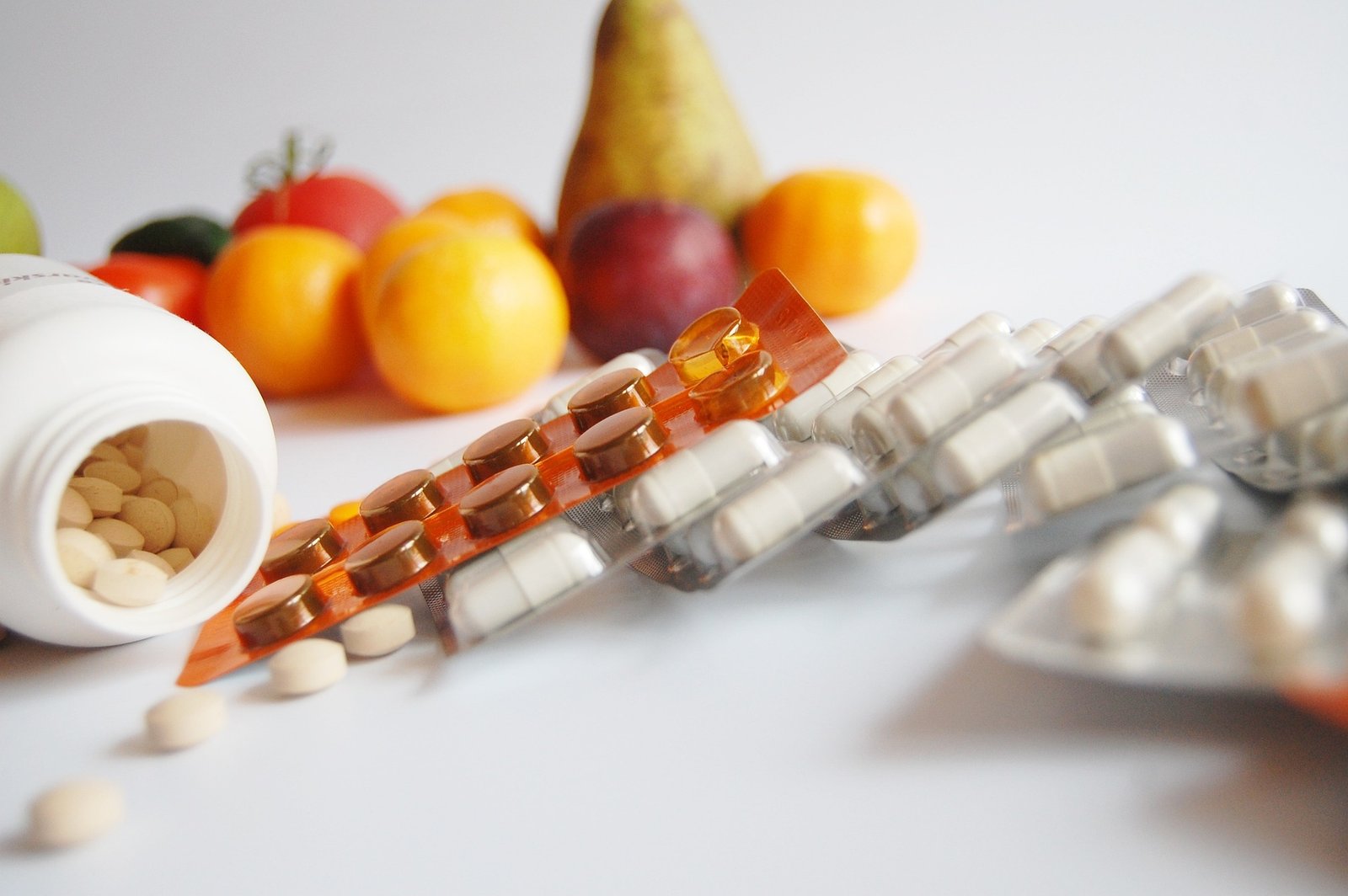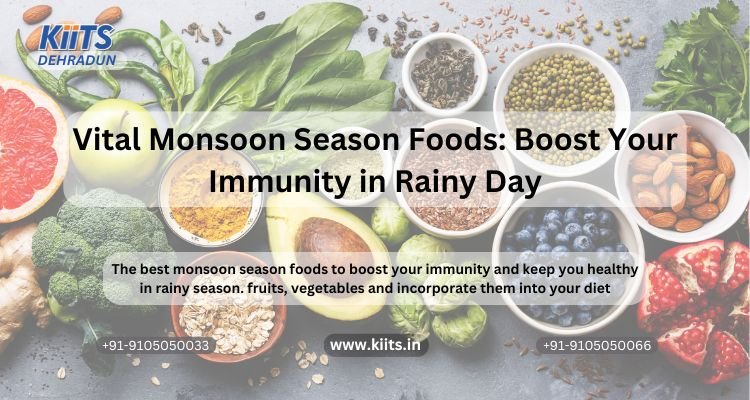Introduction
The monsoon season brings relief from the scorching summer heat and ushers in a time of lush greenery and rejuvenation. However, this season also presents unique health challenges due to the increased humidity and the growth of bacteria and viruses. To stay healthy and vibrant during the rainy season, incorporating the right monsoon season food into your diet is essential. This blog will explore the best monsoon season foods, their health benefits, and how to make the most of them to boost your immunity and enjoy the rains.

The Importance of Eating Right in the Monsoon
Monsoon season food plays a crucial role in maintaining health during the rainy season. The humid and damp weather can lead to increased susceptibility to infections and digestive issues. Thus, focusing on monsoon season foods that boost immunity and are easy on the digestive system can help you stay well and energetic. Choosing the right monsoon season foods is key to balancing appetite changes and providing the nutrients necessary for optimal health.
Top Vegetables for the Monsoon
Bitter Gourd (Karela)
- Benefits: Bitter gourd is a powerful monsoon season food known for its detoxifying and immune-boosting properties. It helps purify the blood, enhance digestion, and reduce inflammation. The bitter compounds in karela have strong antibacterial and antiviral effects, making it a great choice during the monsoon.
- How to Use: You can prepare monsoon season food with bitter gourd by making stuffed karela, karela stir-fry, or adding it to soups. Drinking bitter gourd juice can also be beneficial.
Bottle Gourd (Lauki)
- Benefits: Bottle gourd is an ideal monsoon season food because of its high water content and cooling properties. It aids digestion, supports weight loss, and is good for heart health. Its hydrating nature helps keep the body cool and balanced during the rainy season.
- How to Use: Incorporate bottle gourd into your monsoon season food repertoire by preparing soups, curries, or lauki juice. Lauki kofta, or grated bottle gourd balls in curry, is a popular dish.
Tinda (Indian Round Gourd)
- Benefits: Tinda is a water-rich monsoon season food that helps in maintaining hydration and improving digestion. It is easy on the stomach and provides essential nutrients to support overall health.
- How to Use: Prepare tinda sabzi, add it to curries, or make a tinda and dal stew to enjoy its benefits.

Spinach
- Benefits: Spinach is packed with vitamins A, C, and K, along with iron and folate, making it a valuable monsoon season food. It boosts immunity, supports eye health, and helps reduce oxidative stress.
- How to Use: Use spinach in salads, soups, or cook it as palak paneer. Spinach smoothies are a great way to incorporate this monsoon season food into your breakfast.
Radish
- Benefits: Radish is another excellent monsoon season food rich in vitamin C, fiber, and antioxidants. It aids digestion, detoxifies the liver, and enhances immunity.
- How to Use: Add radish to salads, soups, or prepare mooli paratha (stuffed radish flatbread). Radish can also be pickled for added flavor.
Immunity-Boosting Fruits in Rainy Season
Pomegranates
- Benefits: Pomegranates are loaded with antioxidants, vitamins, and minerals, making them an essential monsoon season food for boosting immunity and heart health. They also help reduce inflammation, which is beneficial during the rainy season.
- How to Use: Enjoy pomegranate seeds as a snack, add them to salads, or blend them into smoothies. Pomegranate juice is also refreshing and healthy.
Apples
- Benefits: Apples are a great monsoon season food due to their high fiber, vitamin, and antioxidant content. They aid digestion, boost immunity, and help in preventing chronic diseases.
- How to Use: Eat apples as a snack, include them in fruit salads, or bake them with cinnamon for a nutritious dessert.
Papaya
- Benefits: Papaya is a beneficial monsoon season food rich in vitamin C, fiber, and antioxidants. It supports digestion, boosts immunity, and reduces inflammation.
- How to Use: Enjoy fresh papaya as a snack, add it to fruit salads, or blend it into smoothies. It can also be used in savory dishes like salads and salsas.

Oranges
- Benefits: Oranges are packed with vitamin C, fiber, and antioxidants, making them a crucial monsoon season food for improving immunity and skin health. They also help reduce the risk of chronic diseases.
- How to Use: Eat fresh oranges, add them to salads, or drink freshly squeezed orange juice. Oranges can be used in both sweet and savory dishes.
Pears
- Benefits: Pears are high in fiber, vitamins, and antioxidants, making them a valuable monsoon season food for digestion, immunity, and heart health.
- How to Use: Eat pears as a snack, add them to salads, or bake them with spices for a healthy dessert. Pears can also be included in savory dishes and smoothies.
Other Monsoon Superfoods
Ginger
- Benefits: Ginger is a powerful monsoon season food with anti-inflammatory and antioxidant properties. It helps in boosting immunity, improving digestion, and reducing nausea.
- How to Use: Incorporate ginger into your monsoon season food routine by adding it to teas, soups, stir-fries, and smoothies. Ginger tea with honey and lemon is a popular remedy for colds and sore throats.
Garlic
- Benefits: Garlic contains allicin, which offers antimicrobial and immune-boosting benefits. It helps fight infections and reduces inflammation, making it a key monsoon season food.
- How to Use: Use garlic in cooking to enhance the flavor of soups, stews, and stir-fries. For optimal benefits, consume garlic raw or lightly cooked.
Turmeric
- Benefits: Turmeric is rich in curcumin, a compound with potent anti-inflammatory and antioxidant properties. It is an important monsoon season food for boosting immunity and reducing inflammation.
- How to Use: Add turmeric to curries, soups, and teas. Golden milk (milk with turmeric) is a popular way to enjoy turmeric.
Honey
- Benefits: Monsoon Season Foods as Honey has natural antibacterial and antiviral properties, making it a valuable monsoon season food. It soothes the throat, boosts immunity, and provides a natural energy boost.
- How to Use: Use honey as a sweetener in teas, smoothies, and desserts. A spoonful of honey with warm water and lemon is an effective remedy for colds and sore throats.
Almonds
- Benefits: Almonds are packed with vitamin E, healthy fats, and antioxidants, making them a nutritious monsoon season food. They support immunity, skin health, and heart health.
- How to Use: Snack on almonds daily, add them to oatmeal, yogurt, or salads. Almond butter is also a delicious and healthy spread.

How to Incorporate Monsoon Season Foods into Your Diet
Eating a balanced diet rich in monsoon season foods is essential for good health and immunity. Here are some tips to incorporate these monsoon season foods into your daily meals:
Breakfast
- Smoothie: Start your day with a smoothie made from yogurt, fresh fruits, and a dash of turmeric. Add a handful of almonds for an extra boost of vitamin E.
- Oatmeal: Prepare oatmeal with fresh fruits like apples, pears, and a sprinkle of cinnamon. Top Monsoon Season Foods with honey and almonds for added nutrition.
Lunch
- Salad: Prepare a salad with green leafy vegetables, citrus fruits, and pumpkin seeds. Drizzle with olive oil and lemon juice for a healthy dressing.
- Soup: Make a nourishing soup with monsoon season foods like spinach, bottle gourd, and ginger. Add garlic for additional flavor and health benefits.
Snacks
- Fruit: Keep snacks like fresh fruits (oranges, pomegranates) handy. Ginger tea with honey and lemon makes for a soothing and immune-boosting drink.
- Nuts: Snack on a handful of almonds or prepare a mix of nuts and seeds for a healthy and energizing snack.
Dinner
- Curry: Prepare curries with vegetables like bitter gourd, tinda, and garlic. Add turmeric for its anti-inflammatory properties.
- Stew: Make a vegetable stew with a variety of monsoon season foods and spices like ginger and turmeric. Serve with whole-grain bread or rice.
Desserts
- Baked Fruits: Bake apples or pears with a sprinkle of cinnamon and honey for a healthy dessert for Monsoon Season Foods.
- Yogurt Parfait: Layer yogurt with fresh fruits, nuts, and a drizzle of honey for a delicious and nutritious dessert.

Lifestyle Tips to Boost Immunity
In addition to eating monsoon season food, adopting healthy lifestyle habits is essential for boosting immunity. Here are some tips:
- Stay Hydrated: Monsoon Season Foods Drink plenty of water throughout the day to keep your body hydrated and flush out toxins.
- Exercise Regularly: Engage in regular physical activity to improve circulation and boost your immune system.
- Get Adequate Sleep: Ensure you get 7-8 hours of quality sleep each night to support immune function.
- Practice Good Hygiene: Wash your hands regularly and maintain good hygiene to prevent infections.
- Manage Stress: Practice stress-reducing techniques such as meditation, yoga, and deep breathing exercises to keep your immune system strong.
Conclusion
Incorporating the right monsoon season foods into your diet is key to staying healthy and enjoying the rainy days. By focusing on nutrient-rich fruits, vegetables, and superfoods, you can boost your immunity and protect yourself from common monsoon-related illnesses. Remember to stay consistent with a balanced diet and healthy lifestyle habits to make the most of the monsoon season.
For more tips on health-related advice, visit our blog regularly. Stay healthy and embrace the monsoon with vigor!








